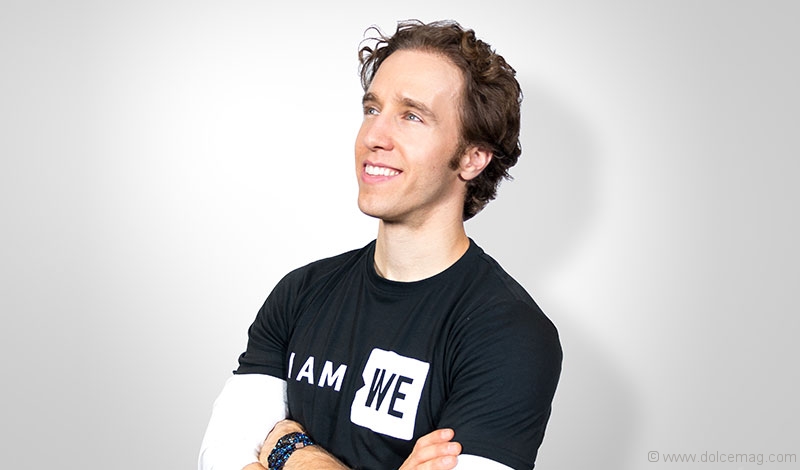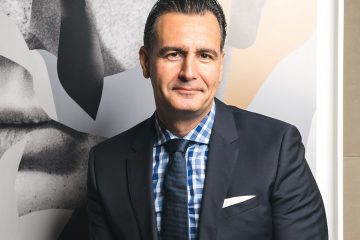Craig Kielburger We Charity
Craig Kielburger
Founder of We Charity.
Educating today’s youth on the importance of empathy and human rights is a hot topic in the world at large. And while there are all manner of reasons why taking the time to teach children about things like the importance of community service is a good idea, there is one that is perhaps somewhat underutilized. It’s a concept that has kept Craig Kielburger working passionately for over two decades, building a momentum that shows no signs of stopping. Dolce Magazine visited the successful social entrepreneur to talk about his success and how he hopes to channel it into creating even more opportunities to help build stronger children and stronger communities.
It all started with a newspaper article. That’s what caught 12-year-old Craig Kielburger’s attention. The article was about Iqbal Masih, a Pakistani boy, also 12 years old, who advocated for human rights and was murdered in response. Despite his young age and the distance between them, Kielburger felt a connection to that boy. He sought more information regarding the circumstances around the death and the overlying issues of human rights. This bright mind came to the conclusion that something had to be done to stop oppression and violence. And while that would be remarkable on its own, Kielburger did even more than that. He reached out to other students and teachers alike, and he attempted to find a solution to help children and their families out of bad situations.
Kielburger’s passion for engaging youth in world issues in order to create a better global society was ignited with that newspaper article, and has proved to be incredibly strong. For over two decades, Kielburger has worked tirelessly to create a worldwide initiative focused on creating safer communities, and the results have been astounding. That’s not to say it was always easy, of course.
When asked about his proudest moment related to his activism and outreach work, Kielburger had a rather unusual answer to share. He said that his proudest moments during the early years of his work were the times that he and his friends almost quit. They were young activists in a time when society largely ignored the importance of engaging youth in social issues, and they encountered the kind of reaction you might expect. In school, for example, Kielburger was teased for his beliefs. “It wasn’t cool,” he says, referencing the way his group was perceived by others. The difficulties almost led Kielburger and the friends that helped form his initial activist group to give up.
“At the root of every challenge the world faces [is] how we educate children”
They didn’t give up, however, and today Kielburger speaks to stadiums full of roughly 35,000 people about his dreams, his goals and his work. Transcending cultural differences as well as the not insignificant issue of distance, he has managed to create a movement that unites people all over the world. Kielburger is proud of those moments that tested his resolve because he persevered, and his commitment grew stronger as a result. The early days of uncertainty helped lead to the massive success that he currently experiences.
Perhaps one of the most truly remarkable aspects surrounding Kielburger’s success is his ability to see “the big picture.” Even as a youth, he envisioned a world where people focused on the good of everyone instead of simply their own benefit. Regardless of the fact that he had not personally experienced the kind of hardship faced by child workers and their families, he understood that the issue was a global one. Instead of waiting around for the adults he knew to do something about it, Kielburger took up the mantle and began championing the cause. He recognized that young people could make a real difference in the world, and that belief has shaped his work for decades. It is also this belief that has led to the renaming and restructuring of his organization.
Kielburger founded Free the Children in 1995 with his older brother and a few friends who also believed in the cause. For the past two decades, the organization has operated under this name. According to Kielburger, however, the time has come for a change. The scope of his vision has widened, and his organization must adapt to accommodate it. That’s why he’s changing the name to WE. “It speaks to the fact that our work is so much more than just what the name ‘Free the Children’ implied,” he says, elaborating on the shifting focus of the group. He continues, “At the core of it, [the group]’s trying to bring people together to create change.” Kielburger wants to shift the global perspective on youth involvement in world issues.
Kielburger believes his goal can be accomplished by educating youth around the world about the kinds of conditions that people are facing, and encouraging them to get involved. “We’re going to light a spark to go around the world,” he says, excited at the prospect. And why wouldn’t he be? Kielburger has already created a generation that values youth involvement at a global level. “At the root of every challenge the world faces,” Kielburger says, is “how we educate children.” His efforts to educate children on the importance of engaging globally, then, are incredibly important and have created a worldwide impact that will last for generations to come.
photo by carlos a. pinto























































































No Comment